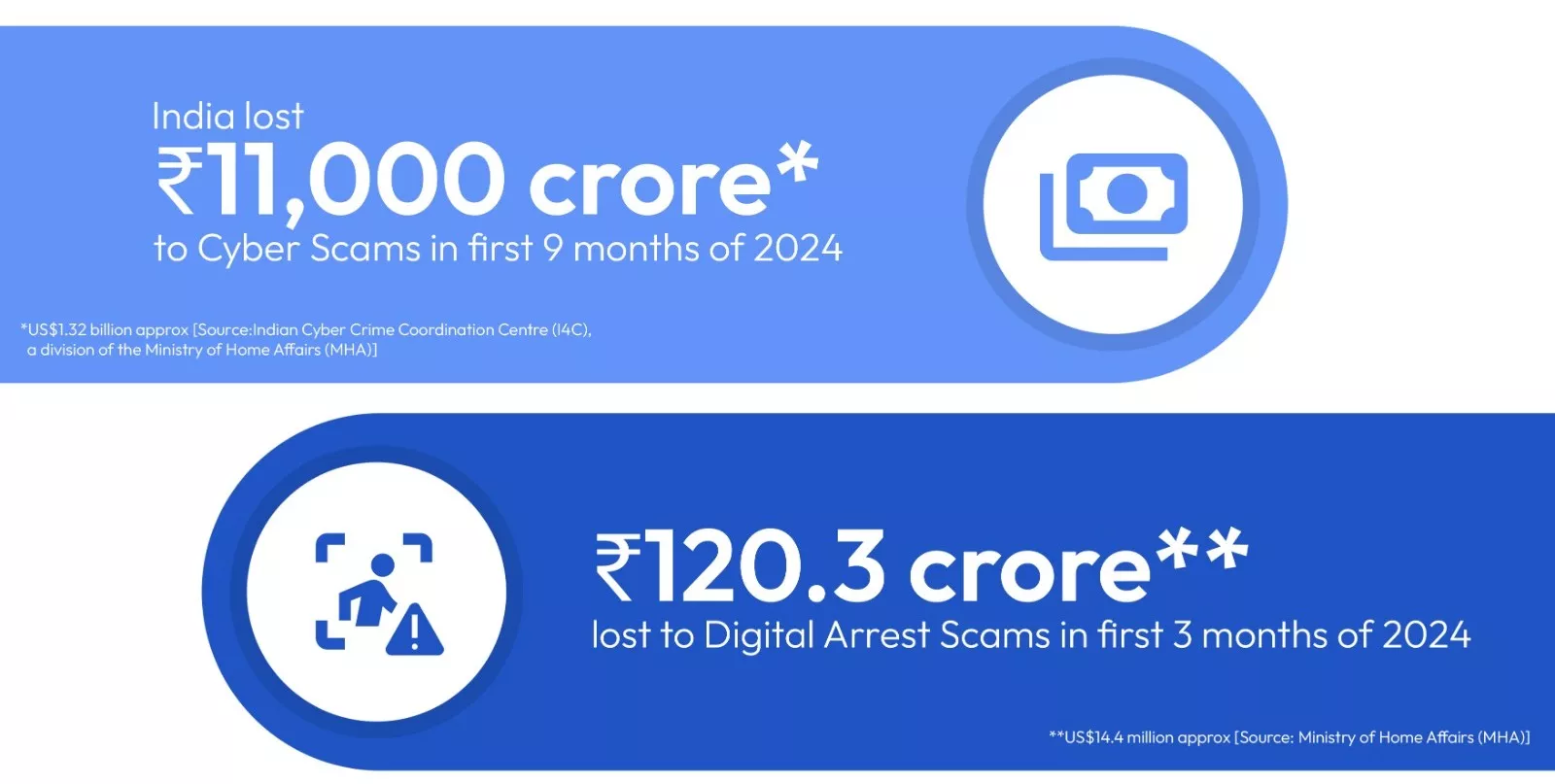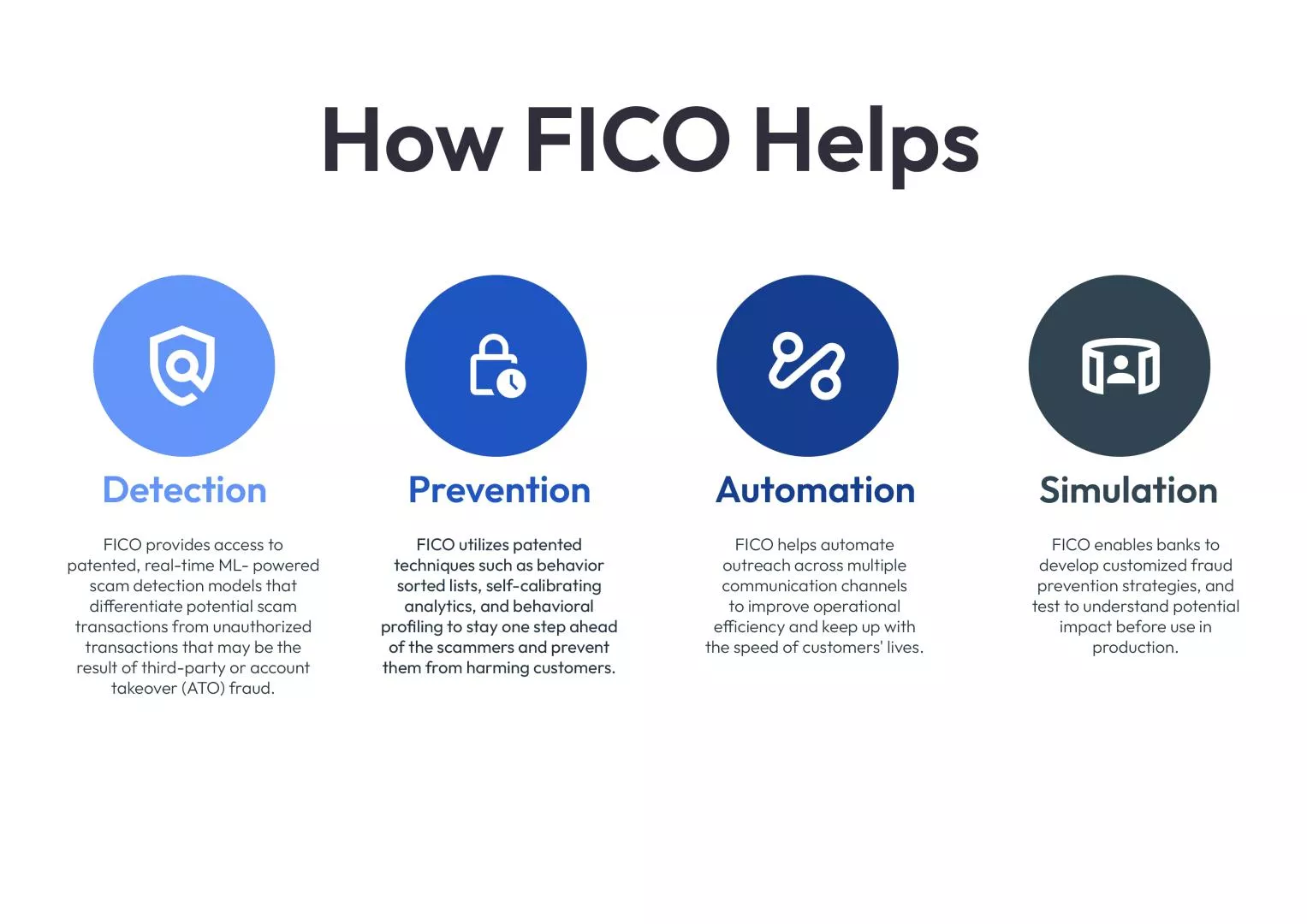India's Digital Scam Epidemic: A Threat to its Financial Resilience
As digital transactions soar, Indian banks face a rising tide of scams. Learn how to stay ahead with smarter fraud prevention strategies.

The Dark Side of Digital India: How Scammers Are Exploiting Online Payments
Online payments are becoming the backbone of India's financial system as the country transitions to a digital-first economy. From villages to Delhi - 'Digital India' has reshaped how citizens interact with money. However, this transformation has also brought to light a growing vulnerability: a surge in digital scams that threaten to undermine the very progress it has fostered.
Scams, particularly an Authorized Push Payment (APP) scam, occur when victims are tricked into willingly transferring rupees – with tactics that range from fake investments and legal notices to emotional manipulation. Scams are very different from traditional fraud that involves unauthorized access to bank accounts or identity theft. With the explosion in transactions via Unified Payments Interface (UPI), Real-Time Gross Settlement (RTGS), and Immediate Payment Service (IMPS), there is a staggering increase in these scams.

Reports indicate that, in the first nine months of 2024, India lost around ₹11,000 crore (US$1.32 billion approx) to cyber scams, but a more surprising number is that ₹120.3 crore (US$14.4 million approx) was lost to ‘digital arrest’ scams within the first three months of the same year. Digital arrest scams, which are relatively new and may be unfamiliar to many people, happen when scammers impersonate law enforcement officers and intimidate victims to transfer money to avoid legal trouble. In one instance which isn’t an isolated incident, a woman from Bengaluru was tricked into transferring ₹30 lakh (US$36,000) to scammers posing as government officials. Beyond this, romance scams, fake investment schemes, and parcel scams are also becoming common, each taking a toll on unsuspecting victims.
The Escalating Threat of Scams in India Fueled by Real Time Payments (RTP)
UPI transactions alone jumped by 52% last year, showing just how much people are reliant on real-time payments (RTP). Scammers target the growing volume and speed of RTP transactions while also adapting their approach to carry out their schemes. The impact of these scams is concerning, not only from a financial standpoint, but also from a social perspective – left unchecked, this could hurt consumer trust, as observed in other countries where digital payments are rapidly evolving.
This threat extends far beyond individuals - impacting banks and financial institutions that are at the heart of this digital economy. Globally, banks and regulators are tightening security and operations; but as the honeypot of opportunities moves to scams, the traditional, reactive approach is no longer enough. We need a proactive strategy that anticipates threats and actively prevents them.
Legal and Financial Burden on Consumers and Banks Responsibility
Digital scams are also creating a growing legal and financial strain for both consumers and banks. While victims suffer financial losses, banks face the dual risks of financial impact and reputational damage, with recovery rates often remaining shockingly low.
In India, the compensation for scam victims, especially in cases involving APP scams, is determined based on specific circumstances, and banks are not legally required to make restitution as would be the case in other countries. Take the UK, for instance, where the Payment Systems Regulator mandated both the sending and receiving banks to compensate customers who fall prey to scams, up to £85,000.
Governments and regulators are also stepping up – In India, the Reserve Bank of India (RBI) has recently introduced AI-powered initiatives designed to protect the banking system from scams, alongside strengthened cybercrime cells and public awareness campaigns for customers. Its 14C guidelines also mandates banks and financial institutions to develop and deploy better detection algorithms and provide proactive education to their customers through alerts, app notifications, and warning messages, as an added measure.
As FICO’s 2024 Scams Impact Report highlights, 45% of Indian consumers believe that better detection systems would be the most effective way to combat scams. And it doesn't stop there; they can also play a role in educating customers on emerging threats – which is where FICO comes in.
FICO: Role of Intelligent Detection Systems
For more than 30 years, FICO has delivered fraud solutions that detect and prevent fraud and financial crime across the customer's life cycle. By leveraging AI-driven insights and real-time monitoring, FICO’s technology can deliver insights in milliseconds—faster than the blink of an eye—while processing thousands of fraud detection calculations per transaction.
The company’s advanced scam detection technology can help banks differentiate between unauthorized transactions, authorized transactions and authorized push payments that may be associated with fraud, distinguishing between genuine transactions and those made under likely duress or deception. FICO’s machine learning-powered fraud detection model has been shown to detect up to 50% more scam transactions over a traditional third-party fraud score, with a low review rate of just 0.5%.
The speed and precision significantly enhance banks’ ability to prevent scams before they can impact customers. This has earned FICO multiple accolades, including the 2022 Machine Learning in Credit and Collections Award and the 2024 Silver Medal for best scam and APP fraud innovation from the analyst firm Datos Insights for its Scam Signal, developed in conjunction with Jersey Telecom, reaffirming the impact and reliability of its fraud prevention capabilities.
FICO’s fraud technology protects more than 4 Billion payment cards globally and in Asia Pacific while working with many of the most significant banks across the region. The company’s partnership with Bank Mandiri in Indonesia helped safeguard over 1.64 billion transactions valued at US$156 billion and reduce fraud losses by 85% in eight months. Indian banks including Axis Bank and ICICI Bank, have also long relied on FICO’s fraud prevention technology to protect customers. Axis Bank, for instance, has been using FICO’s Falcon fraud detection system since 2013, enabling it to identify potential fraud in real-time and take appropriate action. ICICI Bank, another early adopter, has seen similar success using the same AI-powered solutions.
No Silver Bullet for APP fraud and Scams
Authorized push payment fraud is complex and multifaceted, affecting individuals, businesses, and banks alike. While no solution is flawless, a multi-layered and collective approach - where every stakeholder plays their part, will be key to reducing losses. Education, the right tools, and effective policy enforcement will be essential.
Consumers and businesses must be educated and aware, banks must use the tools available to them and the industry and regulators must continue to drive effective policy and where necessary regulation.
As scams become more sophisticated, the urgency for this collective effort has never been greater. The road ahead is challenging, but with a concerted effort, the tide of scams can be turned.
Take Action Against Scams
- Learn how FICO’s solutions can help you stay ahead of scams.
Get in touch for actionable strategies – email dattukompella@fico.com.
Find Out How FICO Can Help You Better Manage Scams
1. Discover Key Insights – Read the FICO 2024 Scams Impact Survey: India
2. Stay Ahead of Global Trends – Explore the FICO 2024 Global Scams Impact Survey
3. Read our blog on stopping scams in real time, Survey: Real-time Intervention Is Key to Scam Protection
4. Explore insights on Real-Time Payments: 4 Requirements for Scam Protection Systems
5. Read our post on, From Detection to Prevention – Tackling Scams from Every Angle

Popular Posts

Average U.S. FICO Score at 717 as More Consumers Face Financial Headwinds
Outlier or Start of a New Credit Score Trend?
Read more
Average U.S. FICO® Score at 716, Indicating Improvement in Consumer Credit Behaviors Despite Pandemic
The FICO Score is a broad-based, independent standard measure of credit risk
Read more
Business and IT Alignment is Critical to Your AI Success
These are the five pillars that can unite business and IT goals and convert artificial intelligence into measurable value — fast
Read moreTake the next step
Connect with FICO for answers to all your product and solution questions. Interested in becoming a business partner? Contact us to learn more. We look forward to hearing from you.
